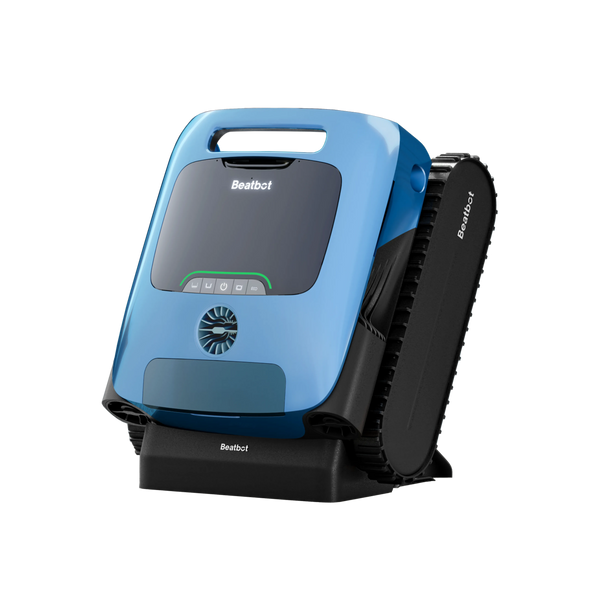Summer Splash Safety: Your Comprehensive Pool Safety Guide
2024-04-17
Pool safety is a continuous commitment that evolves with each summer season, which requires education and a proactive approach to risk management. Promoting a safety culture and community support ensures your pool is a source of joy, relaxation, and fond memories for everyone involved. Let's always safeguard the pleasure of the pool experience for each swimming season.
Table of content
Share lessons learned from the accident to encourage others to enhance their pool safety measures. Raise awareness about the accident sensitively and constructively within your community to remind people of the importance of pool safety.
The Pillars of Vigilance: Supervision and Awareness
Unwavering Supervision
The cornerstone of pool safety lies in constant, diligent supervision. An adult, preferably one who is a proficient swimmer and knowledgeable in water safety, should always oversee pool activities.
This is non-negotiable when children are involved. Always watch children, especially when there are many distractions around. The hustle and bustle of a busy pool area can divert attention from young swimmers, increasing the risk of accidents.
Fostering Awareness
Educate all pool users, especially children, about the basics of pool safety. Understanding the reasons behind rules like "no running" or "swim with a buddy" can foster a culture of safety.
Keep non-swimmers in shallow water to ensure they can safely enjoy the pool while minimizing the risk of accidents. Encourage questions and discussions about water safety, ensuring that it becomes second nature to everyone.

Swimming Skills is Essential for All Ages
Swimming is a lifesaving skill that every person should possess. From toddlers to seniors, swimming lessons can provide not only the ability to navigate water but also confidence. Tailor swimming lessons to each individual, considering age, ability, and fear level, and remember, it's always possible to learn.
Pool Area Safety: A Comprehensive Approach
Interacting with Pool Equipment
Ensure pool equipment is regularly checked and maintained to prevent unsafe water conditions or hazards from faulty gear.
Integrating advanced solutions, such as Beatbot AquaSense 2 Pro robotic pool cleaners, can elevate safety by automating maintenance, reducing reliance on chemicals, diminishing slip hazards, and consistently preserving water purity to mitigate health risks.
Securing the Perimeter
A secure fence around the pool area needs to prevent unsupervised access. Regular checks to ensure the integrity of these barriers can prevent accidents.
Safety Gear at the Ready
Equip your pool area with lifesaving devices such as life rings, ropes, and a fully stocked first aid kit. Conduct regular audits of these tools to ensure they are in good condition and educate all pool users on how to use them effectively.
Clear and Visible Rules
Display pool rules prominently around the pool area. These should cover safety basics, proper behavior in and around the water, and guidelines for emergencies. Regularly review these rules with your family and guests to ensure everyone understands and respects them.
Weather and Environmental Safety
Respecting Nature
Keep an eye on the weather, especially for signs of approaching storms that could make swimming dangerous. Educate your family on the dangers of swimming during inclement weather and the importance of seeking shelter.
Sun Protection and Hydration
The dangers of sunburn and dehydration are real in summer. Encourage regular application of sunscreen accessories like sunglasses and wearing protective clothing.
Make water and other hydrating beverages available to everyone, emphasizing the importance of staying hydrated, especially on hot days. Avoid swimming outdoors at noon when sunlight is the strongest.

Health and Emergency Preparedness
Lifesaving Skills
CPR and basic first aid are invaluable skills for anyone who is frequently around pools. Consider taking a course as a family or with other frequent pool users.
Emergency Plan
Have a clear, practiced plan in place for pool emergencies. This includes knowing who to call, how to perform basic rescue techniques, and where the nearest phone is located. Regularly review and practice this plan with everyone who uses the pool.
The Role of Technology in Pool Safety
From pool alarms that detect unexpected entries into the water to wearable devices that monitor vital signs and alert for distress, technology offers an additional layer of safety.
Research and invest in technologies that fit your specific pool and user needs, ensuring that they are used correctly and consistently.
Cultural Shift: Building a Safe Swimming Environment
Pool safety education shouldn't stop at the water's edge. Engage in programs that offer insights into water conservation, the importance of respecting aquatic life, and understanding the broader implications of water safety.
For example, understanding pool water chemistry teaches both children and adults about maintaining safe pools and the environmental effects of chemicals.
Responding to Accidents: Immediate Actions and Follow-Up
Immediate Response
Accidents can happen despite all precautions. In case of an accident, quick and calm action is crucial.
If someone is in trouble in the water, ensure the rescuer's safety first; use lifesaving devices like ropes or life rings. If necessary, perform CPR until medical help arrives. Always call for emergency services immediately in the event of a serious incident.
Incident Analysis
After an accident, once everyone is safe and the situation is under control, take the time to analyze what happened. Understanding the sequence of events can help prevent future accidents.
This might involve reassessing pool rules, the layout of the pool area, or supervision practices. Regular training and refreshers on emergency responses for all adults involved can also be beneficial.
Continuous Learning and Improvement
Every incident offers an opportunity for learning and improvement. Use these incidents as teachable moments for everyone who uses the pool. Openly discussing these events can help create a safer environment by highlighting potential risks and reinforcing the importance of adherence to safety protocols.
Professional Assessment
Consider consulting with a pool safety expert or a local pool association following an accident to assess your pool area and safety practices. Follow their recommendations to enhance safety measures and prevent future incidents.
Support for the Affected
In the aftermath of a pool accident, it's crucial to provide support for both the physical injuries and the mental and emotional well-being of the affected individuals and witnesses.
Pool accidents can be traumatic, and offering professional counseling services can help in managing the emotional fallout.
Community Awareness
Share lessons learned from the accident to encourage others to enhance their pool safety measures. Raise awareness about the accident sensitively and constructively within your community to remind people of the importance of pool safety.
Relative Blogs
About the author



















